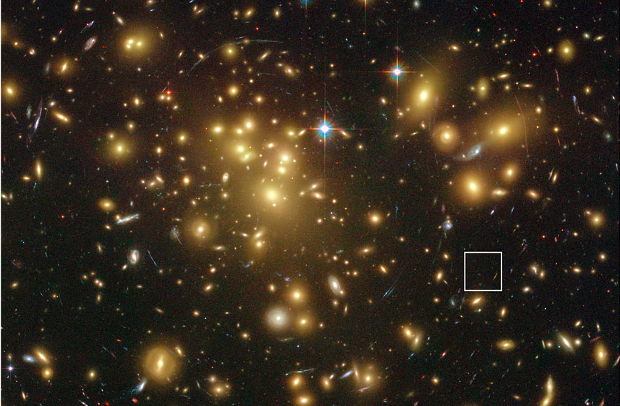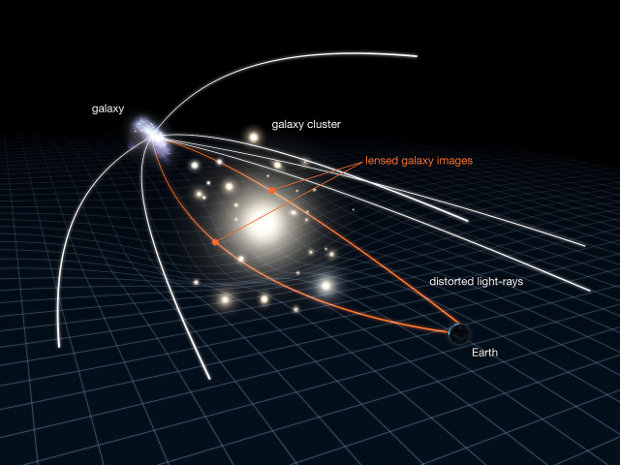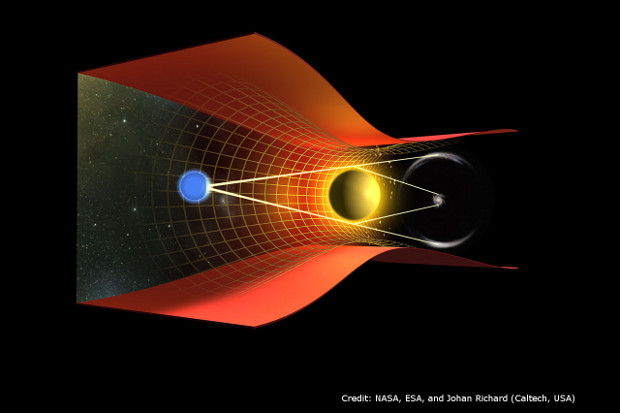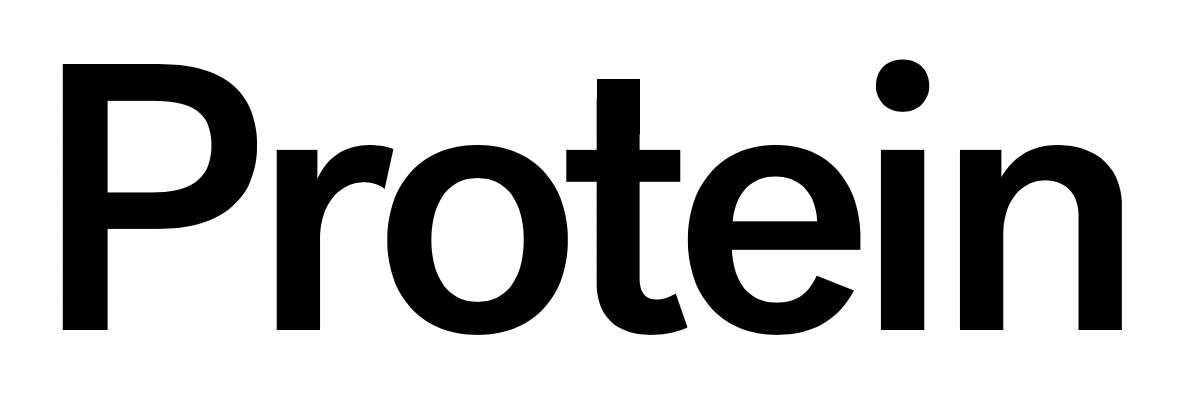Dollars for Dark Matter
Online competition incentivises citizen scientists to find elusive dark matter


Kaggle are offering a cash prize of $20,000 to citizen scientists in return for their help in locating dark matter through their Observing Dark Worlds competition. Dark matter is a hypothesised form of matter which doesn't interact with electromagnetism or light. If it's existance could be verified it would have ramifications for our current models of physics.
You cannot see dark matter, yet it's effects can be quantifiably observed. Large concentrations of dark matter exert a huge gravitational force on the nearby surroundings (and we are talking galaxy scale surroundings here). The passage of light near such concentrations is bent by the force of gravity, a phenomenon known as gravitational lensing. Stars behind such an agglomeration of dark matter will exhibit distorted light, in a manner recognisable as dark matter halos.
The competition is seeking a way to reliably identify the presence of these halos in telescope images of the cosmos. Entrants will submit pattern recognising software, and the code which best locates the center of 120 test dark-matter halos will receive $20,000 in prize money, split three ways: first place will get $12,000, second will get $5,000 and third place will receive $3,000.
Cash prizes for scientific discovery is not a new concept – the X PRIZE has stimulated space flight innovation with it's mulit million Ansari Competition. But touting such incentives towards the ever growing number of citizen scientists is novel. Kaggle have a track record of introducing game mechanics like competitive leaderboards into data science. Their initiative in bringing cash competition to citizen science adds a tasty new element to data driven science, a growing (but perhaps unglamourous) method of making scientific discoveries from big data.





Discussion